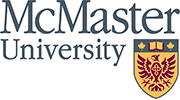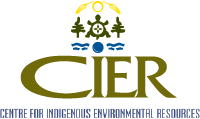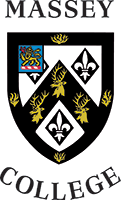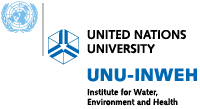How can a Canada Water Agency Deliver Water Security for Canadians?
A National Water Policy Panel Discussion
May 13, 2020
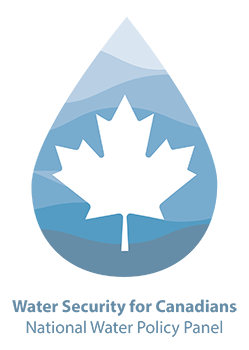
In April 2019, GWF and partners issued a public call to action, Water Security for Canadians: Solutions for Canada's Emerging Water Crisis. It called for modernization of Canada's water institutions, governance, policies and legislation to better address the emerging national water crisis.
In late 2019, the Government of Canada announced the development of a Canada Water Agency to be led by the ministers of Environment and Climate Change and Agriculture and Agri-Food.
Responding to this opportunity, we have prepared a draft White Paper Modernizing Federal Freshwater Leadership that provides guidance to assist the federal government in achieving institutional and legislative reform for water management in Canada. On May 13th we brought together over 600 professionals in the water community including government agencies, universities, community-based and Indigenous organizations, and industries across the country for a virtual discussion of these ideas.
The National Water Policy Panel was chaired by Dr. Thomas Axworthy of Massey College, and featured Terry Duguid, MP and Parliamentary Secretary to the Minister of Environment and Climate Change and six experts in water science and governance. The discussion explored Canadian water issues and how a Canada Water Agency can contribute solutions, including leadership to mobilize knowledge needed to monitor, predict and solve water problems; strengthen transboundary water management; strengthen reconciliation with Indigenous peoples; and improve collaborative river basin planning between all governments.
Speaking publicly for the first time about his government's intent to create the Canada Water Agency, Terry Duguid also announced a new Government of Canada portal, encouraging participants to help shape the new institution’s mandate, role, form, and legislation and policy reform needs.
Policy Panel Recording
Panel Chair
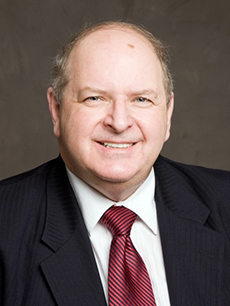
Thomas Axworthy
Chair of Public Policy,
Massey College,
University of Toronto
Thomas S. Axworthy has had a distinguished career in government, academia, and philanthropy. He served as the Principal Secretary to Prime Minister Pierre Trudeau, and was a key strategist on repatriation of the Constitution and the Charter of Rights and Freedoms. He is currently the Chair of Public Policy at Massey College and a distinguished senior fellow both the Munk School of Global Affairs and Massey College.
Water policy has been a consistent theme throughout his career. In the Prime Minister’s Office, he organized Canada’s participation in the 1976 UN Conference on Human Settlements which emphasized the necessity of clean potable water. As President of the Gordon Foundation he promoted the DataStream program that engages communities to collect, analyze and house water quality data in major river basins of the country. As Secretary General of the InterAction Council, he organized the 2011 Expert Meeting on the Global Water Crisis and the 2017 Expert Meeting on Water, Peace and Security. In a personal capacity, he has served as a policy advisor to the Lake Winnipeg Foundation and recently became a Fellow of the University of Saskatchewan’s Centre of Hydrology.
To recognize his achievements in heritage education, civics, and citizenship, Dr. Axworthy was invested as an Officer of the Order of Canada in 2002. He is the author of numerous books and articles and he is a regular contributor to the opinion pages of the Toronto Star, the Globe and Mail, and the National Post. He frequently appears as a commentator on public and national issues.
Featured Guest
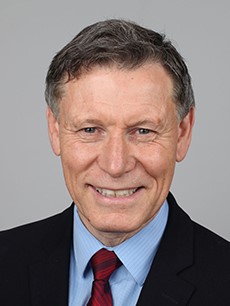
Terry Duguid, MP
Parliamentary Secretary to
the Minister of Environment
and Climate Change
Terry Duguid was elected as the MP for Winnipeg South in 2015 and was re-elected in 2019. In the 2015-2019 Parliament he was the special advisor to Catherine McKenna, Minister of Environment and Climate Change, for the Lake Winnipeg Basin Program. In this role, Terry championed a prairie water strategy to respond to increased nutrient pollution and climate instability. Currently Terry holds two parliamentary secretary positions including to the Minister for Environment and Climate Change where he has been asked to lead the government’s efforts in establishing a Canada Water Agency and in advancing Canada’s freshwater agenda.
Mr. Duguid has demonstrated leadership in community building and environmental protection in both the public and private sectors. Among other inititaives, Terry was appointed Chairman of the Manitoba Clean Environment Commission (2000-2004), leading strong measures to restore the health of Lake Winnipeg and improve flood protection; chaired the Nature Task Force of the National Round Table for Environment and Economy (2001-2004) producing a vision for securing Canada's natural capital; and served as Executive Director for the Manitoba Climate Change Task Force (2001) releasing the province’s first climate change and clean energy economy action plan. Terry was elected to Winnipeg City Council (1989-1995) and chaired the Committee on Works and Operations for four years. He negotiated the City’s first infrastructure program, first blue box recycling program and led major improvements to transit, water treatment and waste management.
Mr. Duguid holds an Honours B.Sc. in Biology from Carleton University and a Master of Environmental Design from the University of Calgary.
Panelists

Dr. John Pomeroy is Director of the Global Water Futures Programme – the largest university-led freshwater research project in the world. At the University of Saskatchewan he is the Canada Research Chair in Water Resources and Climate Change, Distinguished Professor of Geography, Director of the Centre for Hydrology, Director of the Coldwater Laboratory, Canmore, AB and Associate Director of the Global Institute for Water Security. He is a Fellow of the Royal Society of Canada, the American Geophysical Union and the Royal Geographical Society, is the 2019 recipient of the Miroslaw Romanowski Medal from the Royal Society of Canada, was the 2017 recipient of the J Tuzo Wilson Medal from the Canadian Geophysical Union and serves as Institute Professor of the Biogeoscience Institute of the University of Calgary and Adjunct Professor of the University of Waterloo. He leads the International Network for Alpine Research Catchment Hydrology project of the World Climate Research Programme. Dr. Pomeroy has authored over 350 research articles and several books that have been cited over 15,000 times on the impact of land use and climate change on hydrology and water resources.

Merrell-Ann Phare is a lawyer, writer and the founding Executive Director of the Centre for Indigenous Environmental Resources (CIER), a national First Nation charitable environmental organisation. She is a Commissioner of the International Joint Commission. As Chief Negotiator for the Government of the Northwest Territories, Merrell-Ann led the negotiation of transboundary water agreements in the Mackenzie River Basin and the creation of Thaidene Nene, a national and territorial park in the east arm of Great Slave Lake. She is the author of the books 'Denying the Source: the Crisis of First Nations Water Rights' and 'Ethical Water'. She facilitates the BC First Nations Water Governance Roundtable and the Collaborative Leadership Initiative in southern Manitoba. She is a member of the Forum for Leadership on Water, Smart Prosperity's Leadership Council, and is a recipient of Canada's Clean 50 Award. She is legal counsel and advisor to a number of First Nation and Metis governments and organisations and regularly speaks on water, governance, and Indigenous rights issues.
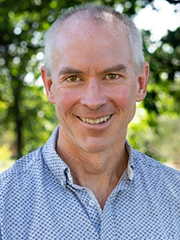
Dr Shawn Marshall is a Professor in the Department of Geography at the University of Calgary, where he held the Canada Research Chair in Climate Change from 2007-2017. He is currently seconded to Environment and Climate Change Canada, where he serves as the Departmental Science Advisor. Dr. Marshall holds a BSc in Engineering Physics from the University of Toronto and a PhD in Geophysics from UBC. His research is in the field of glaciology, where he studies glacier and ice sheet response to climate change and the implications for regional water resources and global sea level rise. Dr. Marshall's work blends field research and numerical modelling, including field studies studying glacier-climate processes in western and Arctic Canada, Iceland, and Greenland. He is currently serving on the Science Leadership Council of the international Mountain Research Initiative, as the Canadian delegate to the International Arctic Science Committee (IASC) Cryosphere Working Group, and as Vice Chair of the World Meteorological Organization (WMO) Cryosphere Study Group.

Ms. Roy is Director of Water Management leading water policy-related research at the International Institute for Sustainable Development (IISD). Ms. Roy has provided research leadership and policy analyses on issues related to water in the context of communities, industry, land, water and agriculture in Canada, Asia, Africa and the Caribbean.
Her work has focused in part on research on governance, policy instruments and translating scientific evidence and data into public policy to meet water related needs in Canada. She works in partnership with provincial and federal government agencies, NGOs, international organizations and others for improved land and water management systems.
Ms. Roy is currently on the Expert Advisory Council for Manitoba’s Climate and Green Plan, as well as on the boards of the Red River Basin Commission and the International Red River Board of the International Joint Commission.
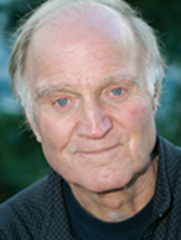
Dr. Jon O'Riordan is a former Deputy Minister of the Ministry of Sustainable Resource Management for the Province of British Columbia. He completed 35 years in the public service, mainly with the provincial government, in environmental management and land and resource planning. He taught a graduate class in public policy and resource planning and governance at the UBC School of Community and Regional Planning. He was Research Director with the Climate Change Adaptation Team centred at Simon Fraser University and continues as a Associate Fellow with the Polis Project on Ecological Governance at the University of Victoria’s Centre for Global Studies. The Polis Project focuses on provincial water policy reform and the ecological governance of watersheds.
Jon is a musician playing viola in various orchestras and singing with a choral group.

Sandra is the Director of the Municipal Consortium, and is responsible for supporting and advancing the Consortium to ensure value and strategic advancement of municipal water management in Canada.
Prior to joining CWN, Sandra supported water management in the agriculture and municipal sectors. She came to CWN after 17 years as a watershed water manager with the Grand River Conservation Authority, where she implemented the watershed water management plan, chaired the Water Managers Working Group, led the Authority’s water quality program and championed the development of the watershed-wide wastewater optimization program. Sandra is acutely aware of how important working and collaborating with people is with respect to making positive change happen in the water community.
Sandra holds an Honours Bachelor of Science from the University of Guelph and a Master of Science from the University of Alberta.
Water Security for Canadians
The Water Security for Canadians Initiative is a collaboration of scientists and policy experts who have come together to analyze Canada's emerging water crisis, and to chart a path forward to ensure water security for all Canadians. Drawing together a wide range of experience from across the country, the Initiative leverages world class science and policy expertise to propose solutions that strengthen cooperative federalism in the context of water governance and management, with specific attention to enhancing the role of the federal government.
Supporting Materials
Draft White Paper: Modernizing Federal Freshwater Leadership
A Water Security for Canadians Initiative White Paper developed to support the creation of a Canada Water Agency. This is a living document and is intended to generate discussion. We welcome feedback to help refine and strengthen the recommendations for modernizing water management in Canada.
Article: A Canada Water Agency is the first step to modernizing water management
An article in support of a Canada Water Agency, written by Oliver Brandes, Merrell-Ann Phare, John Pomeroy, Richard Farthing-Nichol and Stephanie Merrill was published on the Institute for Research on Public Policy (IRPP) website.
Webinar: Water Security for Canadians: Making the Federation Work for Water
This POLIS webinar explores how the federal government can provide leadership and better exercise its jurisdiction to help prevent Canada’s emerging water crisis. The speakers outline a number of specific, achievable activities that could position Canada as a global leader in water prediction, management, and sustainability.
The Massey Dialogues — Dr. Thomas Axworthy and Dr. John Pomeroy on Water Security
Massey College Principal Nathalie Des Rosiers hosted Senior Fellow and Chair of the Public Policy Program Dr. Thomas Axworthy, in conversation with Dr. John Pomeroy, Director of Global Water Futures Programme at the University of Saskatchewan. They were joined by Junior Fellow Isaac Gazendam, who is pursuing his JD at the Faculty of Law. Click below for more information or to view the recording.




